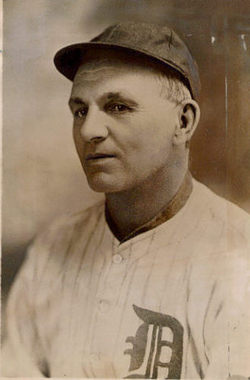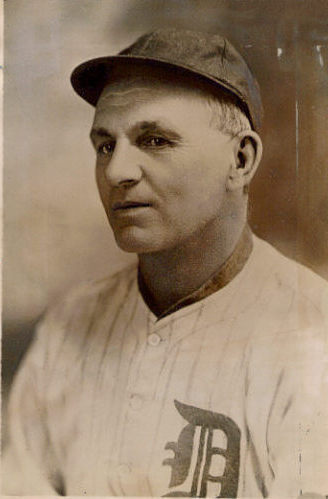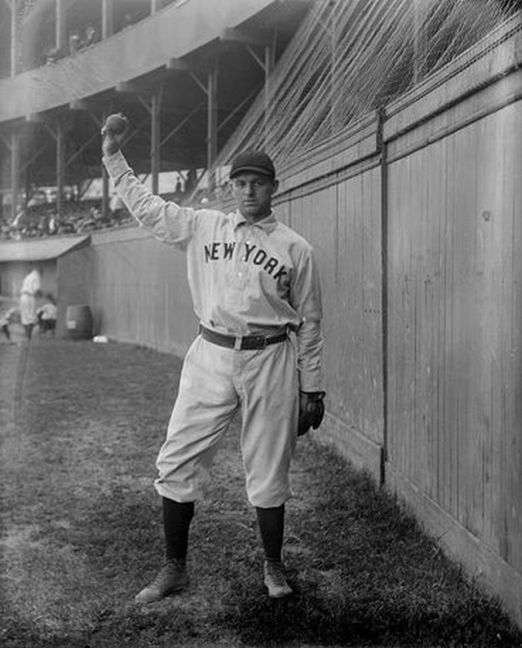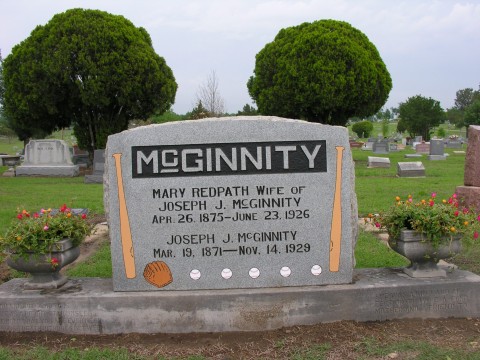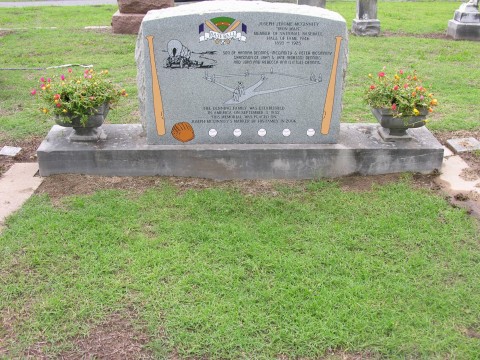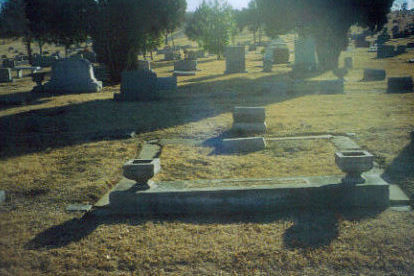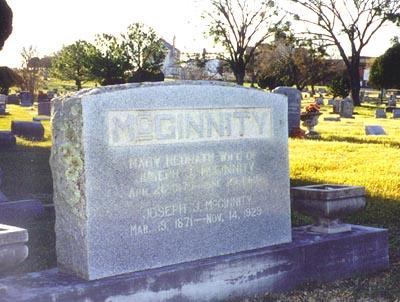During the next three years, he worked and pitched sandlot ball, perfecting a slow, underhand delivery of a variety of curves. He dubbed his favorite curve ball "Old Sal" with which he befuddled hitters for nearly three decades. In 1898, he returned to professional ball, and reached the major leagues in 1899 with Baltimore where he led the National League with 49 games pitched and 28 wins. At age 27, his whirlwind run through the majors had begun.
During his first eight years in the majors, he averaged 370 innings pitched and 27 victories per season, completing 87% of his starts. His career peaked in 1903 and 1904, when he won a combined 66 games, a total surpassed only by Walter Johnson who had 68 wins in 1912 and 1913. He gained national attention in 1903 by pitching and winning both games of a doubleheader three times in one month. He had teamed with Christy Mathewson since 1902 to form the unsurpassed one-two punch on John McGraw's New York Giants.
He slowed down a bit in 1907 when he failed to win 20 games for the first time in the majors, finishing the season with a record of 18-18. In 1908 he pitched a mere 186 innings and won only eleven games, prompting McGraw to decide he was washed up. McGraw released him before the 1909 season, whereupon he bought a partial interest in the Newark team of the International League, launching the second phase of his unique career. McGraw may have thought there was nothing useful left in his arm, but the "Iron Man" proved otherwise. In 1909 and 1910, he won 59 games for Newark, topping 400 innings pitched in both seasons. He moved to Tacoma in 1913, pitched 436 innings and won 22 games. He won twenty or more games six times in the minors between 1909 and 1916, and in 1917, pitching for Butte in the Northwestern League, he once again pitched and won both games of a doubleheader. He was 45 years old at the time. Wherever he went in the minors, he owned a piece of the team and did the managing, so he was able to pitch whenever he felt the urge. After sitting out the seasons of 1919 through 1921, he came back again to run the Dubuque team in the Mississippi Valley League, where he pitched 206 innings in 1923 at age 51. When he finally called it a career after six wins for Dubuque in 1925, he had totaled 235 wins in the minors in addition to his 246 in the majors. He died at his daughter's home in Brooklyn, New York, from bladder cancer.
During the next three years, he worked and pitched sandlot ball, perfecting a slow, underhand delivery of a variety of curves. He dubbed his favorite curve ball "Old Sal" with which he befuddled hitters for nearly three decades. In 1898, he returned to professional ball, and reached the major leagues in 1899 with Baltimore where he led the National League with 49 games pitched and 28 wins. At age 27, his whirlwind run through the majors had begun.
During his first eight years in the majors, he averaged 370 innings pitched and 27 victories per season, completing 87% of his starts. His career peaked in 1903 and 1904, when he won a combined 66 games, a total surpassed only by Walter Johnson who had 68 wins in 1912 and 1913. He gained national attention in 1903 by pitching and winning both games of a doubleheader three times in one month. He had teamed with Christy Mathewson since 1902 to form the unsurpassed one-two punch on John McGraw's New York Giants.
He slowed down a bit in 1907 when he failed to win 20 games for the first time in the majors, finishing the season with a record of 18-18. In 1908 he pitched a mere 186 innings and won only eleven games, prompting McGraw to decide he was washed up. McGraw released him before the 1909 season, whereupon he bought a partial interest in the Newark team of the International League, launching the second phase of his unique career. McGraw may have thought there was nothing useful left in his arm, but the "Iron Man" proved otherwise. In 1909 and 1910, he won 59 games for Newark, topping 400 innings pitched in both seasons. He moved to Tacoma in 1913, pitched 436 innings and won 22 games. He won twenty or more games six times in the minors between 1909 and 1916, and in 1917, pitching for Butte in the Northwestern League, he once again pitched and won both games of a doubleheader. He was 45 years old at the time. Wherever he went in the minors, he owned a piece of the team and did the managing, so he was able to pitch whenever he felt the urge. After sitting out the seasons of 1919 through 1921, he came back again to run the Dubuque team in the Mississippi Valley League, where he pitched 206 innings in 1923 at age 51. When he finally called it a career after six wins for Dubuque in 1925, he had totaled 235 wins in the minors in addition to his 246 in the majors. He died at his daughter's home in Brooklyn, New York, from bladder cancer.
Bio by: 46831545
Family Members
Advertisement
See more McGinnity memorials in:
Explore more
Sponsored by Ancestry
Advertisement
